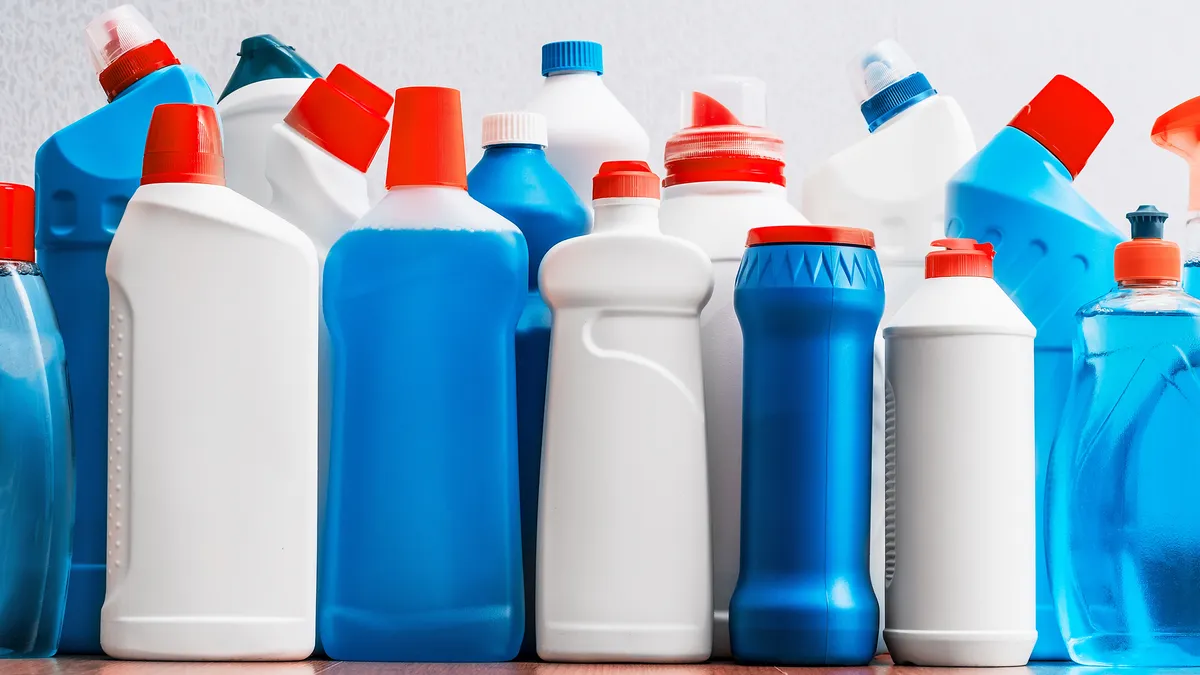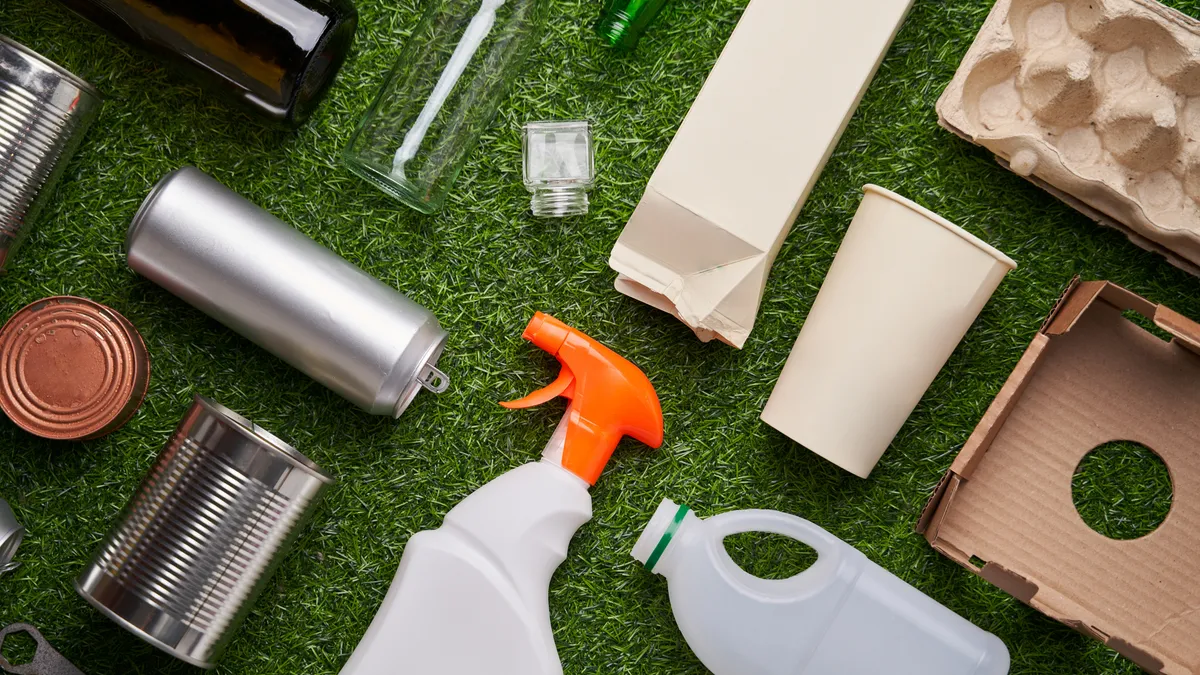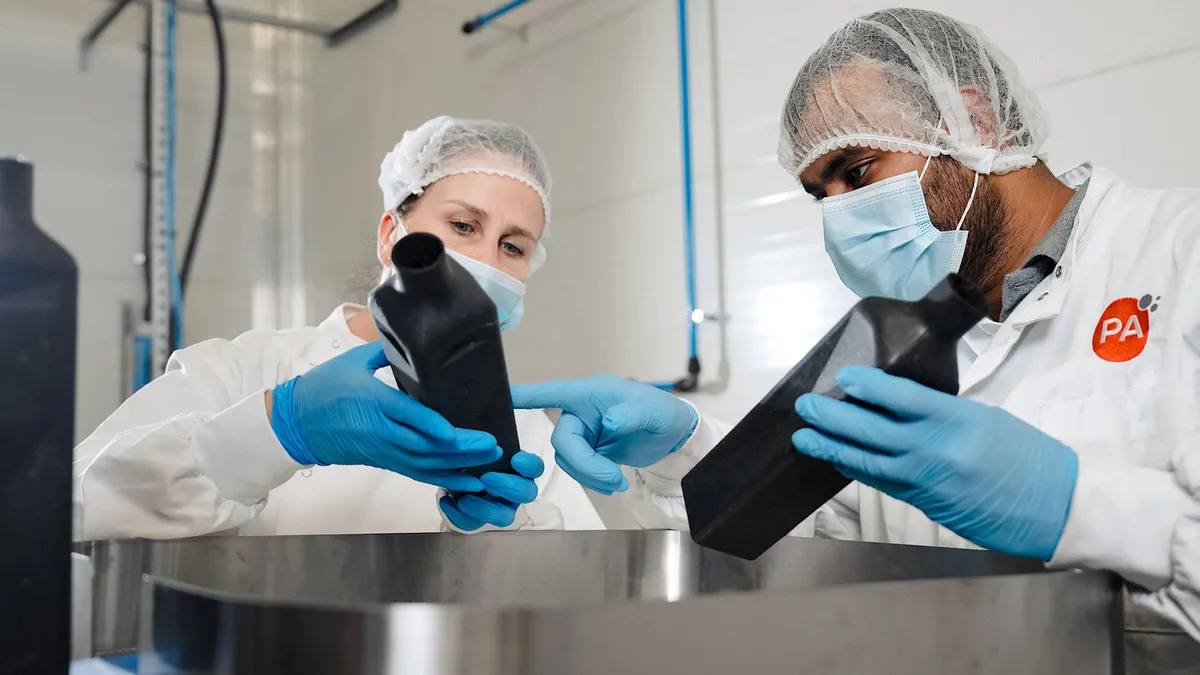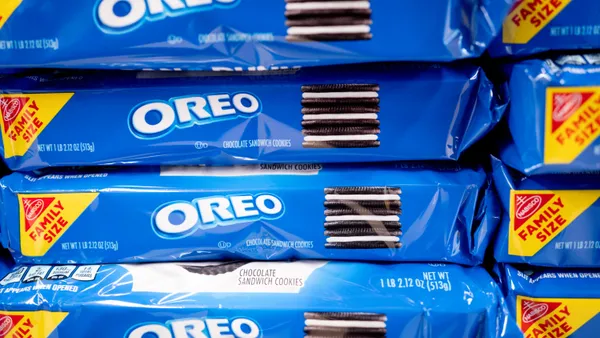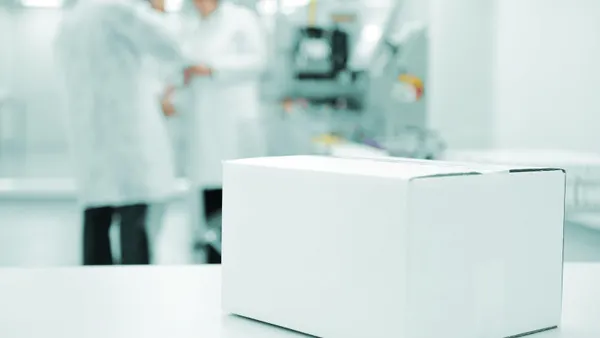Plastic packaging design data in the lead-up to 2025 reinforces the need to reach a strong global plastics agreement, the Ellen MacArthur Foundation indicated when releasing its 2024 progress report for its global commitment program this week.
Packaging producers’ progress toward these goals varies widely, including on a target to make all plastic packaging recyclable, compostable or reusable by 2025. Beginning in 2018, EMF called on signatories — including packaging suppliers and producers, brands and retailers — to take action to meet that goal as well as targets to eliminate problematic or unnecessary plastic packaging, grow the rate of postconsumer recycled content across all plastic packaging and increase reusable packaging.
The rate of reusable packaging remains very low, and is even a non-factor in multiple producers’ portfolios. The rate of PCR use for many packaging producers remains below 10%.
To varying degrees, North American plastic packaging producers have increased their recycled content use and sought to transform diversion options
Some producers openly touted progress this week.
“We are proud to be nearing our goal of 100% recyclable, reusable, or compostable packaging by 2025, with current progress at 98%,” Graham Packaging stated in a social media post acknowledging the EMF report.
The Pennsylvania-based company said in its sustainability report this year that it continues to “strongly recommend” PET, HDPE and PP to customers because recycling for those materials is considered widespread, or accessible to at least 60% of the U.S. population. As for the remaining 2% of its portfolio, the company reported it’s working to eliminate PVC from its product lines and to set up a recycling system for black plastic lubricant bottles.
Another plastic packaging producer, Amcor, a manufacturer based in Switzerland but with significant U.S. operations and trading, also publicly highlighted its advancements during its time as a signatory, including using 9.4% PCR in its plastics in fiscal year 2024.
“The Global Commitment has demonstrated that at-scale progress is possible in the fight against plastic waste and pollution. Signatories like Amcor have doubled the share of recycled content in their plastic packaging — making as much progress in four years as in the four decades before,” said Rob Opsomer, executive lead at the Ellen MacArthur Foundation, in Amcor’s announcement.
“Yet the job is far from done. To meet the scale of the challenge, we need both continued ambitious action by leading companies and global regulation to level the playing field,” he said, calling specifically for better infrastructure, an accelerated shift to reusable packaging, and solutions for flexible packaging.
On the regulatory front, EMF is also a co-convener of the Business Coalition for a Global Plastics Treaty. In its release this week, the foundation called legally binding global policy “essential alongside voluntary action,” noting that 80% of the global plastic packaging market is not covered by its global commitment. Negotiators are on the precipice of a fifth and final meeting in South Korea slated to begin Nov. 25.
Founder Ellen MacArthur herself recently wrote in an opinion piece co-bylined with Christiana Figueres, former executive secretary of the UN Framework Convention on Climate Change, that a global agreement “should focus on preventing plastic from becoming waste in the first place.”
“This means restricting or phasing out problematic and avoidable plastic products, designing products to ensure the remaining plastics are reusable and recyclable, and extending producer responsibility (EPR) to finance the collection and reprocessing of these plastics,” they specified in the Fortune op-ed.



